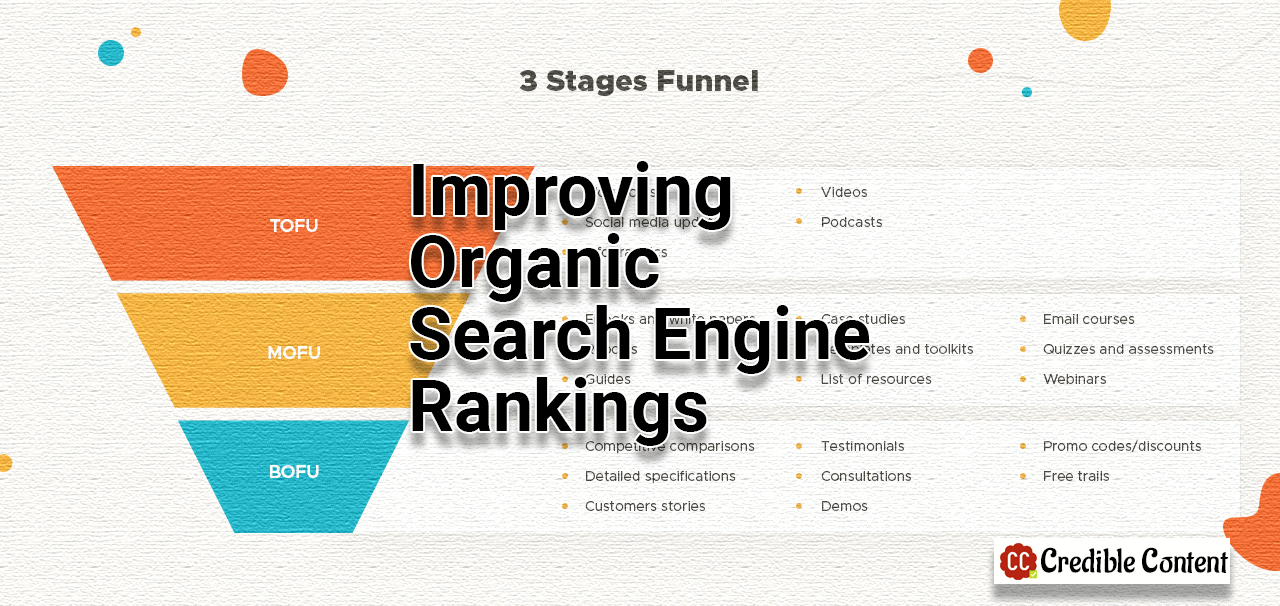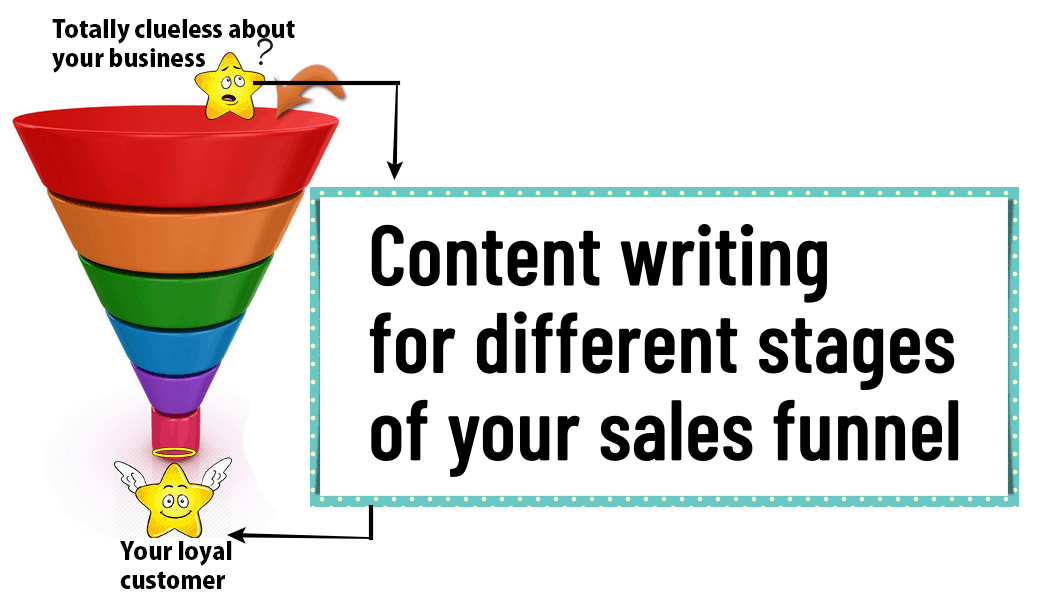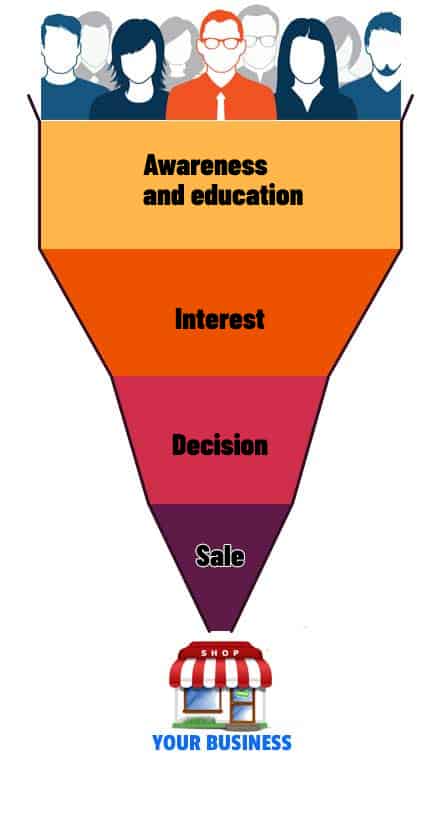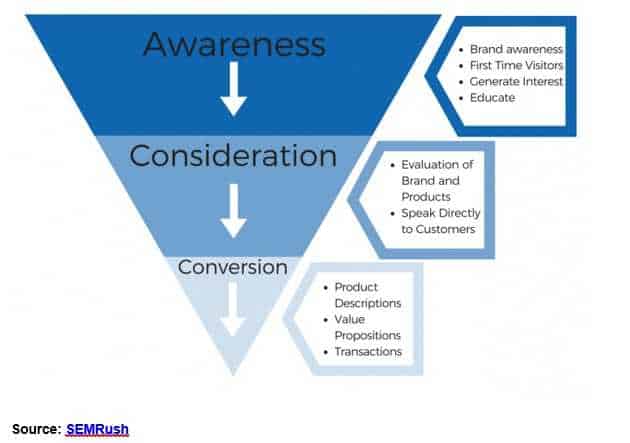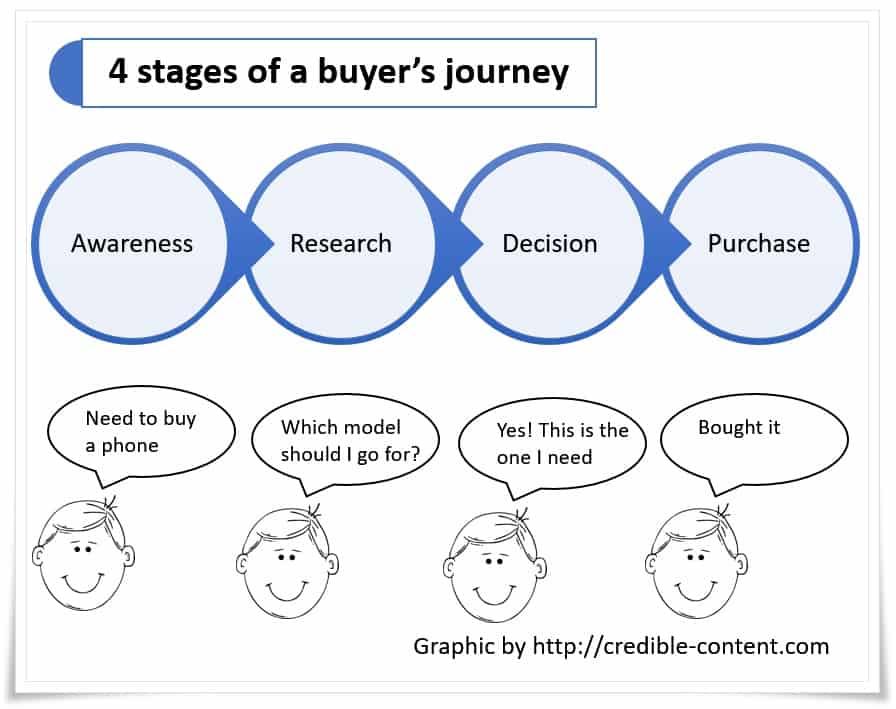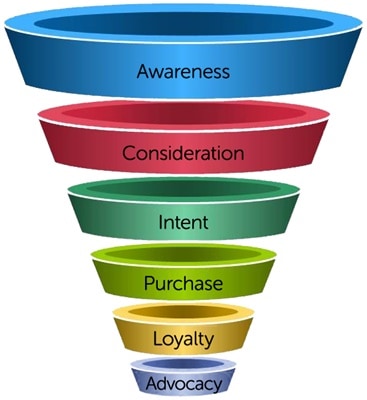I know, the title seems funny, but I will come to that later.
We all want to improve our organic search engine rankings.
“Organic” means natural. Instead of having to pay Google for search engine visibility, you want your links to appear naturally in the search results.
In fact, the entire concept of SEO revolves around improving your organic search engine rankings.
Do you feel that despite publishing blog posts and webpages on your website, your search engine rankings don’t improve much?
Now and then they show some spikes but overall, your rankings and consequently, your organic search engine traffic, remains somewhat less than desired.
Why do you think this happens?
This Readwrite blog post says that it happens because you are not writing and publishing your content according to TOFU, MOFU and BOFU.
No, these are not names for three brothers living in a Mogadishu village. They stand for “Top of the Funnel”, “Middle of the Funnel” and “Bottom of the Funnel”, respectively.
These are the three stages for which you have to separately write and publish content on your website and if you’re not publishing content targeting these funnels, there is little chance that you are going to improve your organic search engine rankings.
Why simply publishing a blog doesn’t improve your organic search engine rankings much?
Blogging is great.
In fact, recently I wrote a blog post titled How does blogging help you grow your business?
The problem is not with blogging.
You need your business blog to increase awareness and to engage your visitors.
Having a business blog and maintaining it diligently is indisputable.
But what the above Readwrite blog post says is, don’t just focus on publishing blog posts.
They may give you a sense of achievement and you may think that you’re doing something important for your business, but when it comes to improving your organic search engine rankings for your SEO, your progress is quite slow.
The progresses certainly there – after all, there is a reason publishing a business blog is highly recommended – but not as good as it should be.
Blogging belongs to the TOFU part of your content marketing strategy – it raises awareness about your business. About your brand.
For example, I regularly publish my content writing blog.
Through the blog, I share lots of important information about the benefits of blogging, content writing, content marketing, email marketing and social media marketing.
I also share tips on how to write content better to improve your SEO and other aspects of writing and publishing content.
This is fine. But am I able to attract hardcore clients who would give me bigger projects?
This is where the role of other funnels comes in.
People come to your website for different reasons.
I don’t want to attract just those people who want to write better content and want to blog better or those who want to improve their SEO with quality content writing.
I want to attract people who are looking for a reliable content writing service for their business.
They want to be reassured.
They want to know if I can write high-caliber content.
For this they need case studies, white papers and other authoritative materials.
They also need an analysis of how I can actually help them improve their engagement rate and organic search engine rankings.
More importantly, how cost-effective and efficient is my content writing service?
To achieve this, I need to target all the categories of the funnel.
Hence, if you want to improve your organic search engine rankings in the sense that you can generate more business, you must write and publish content targeting different funnels.

